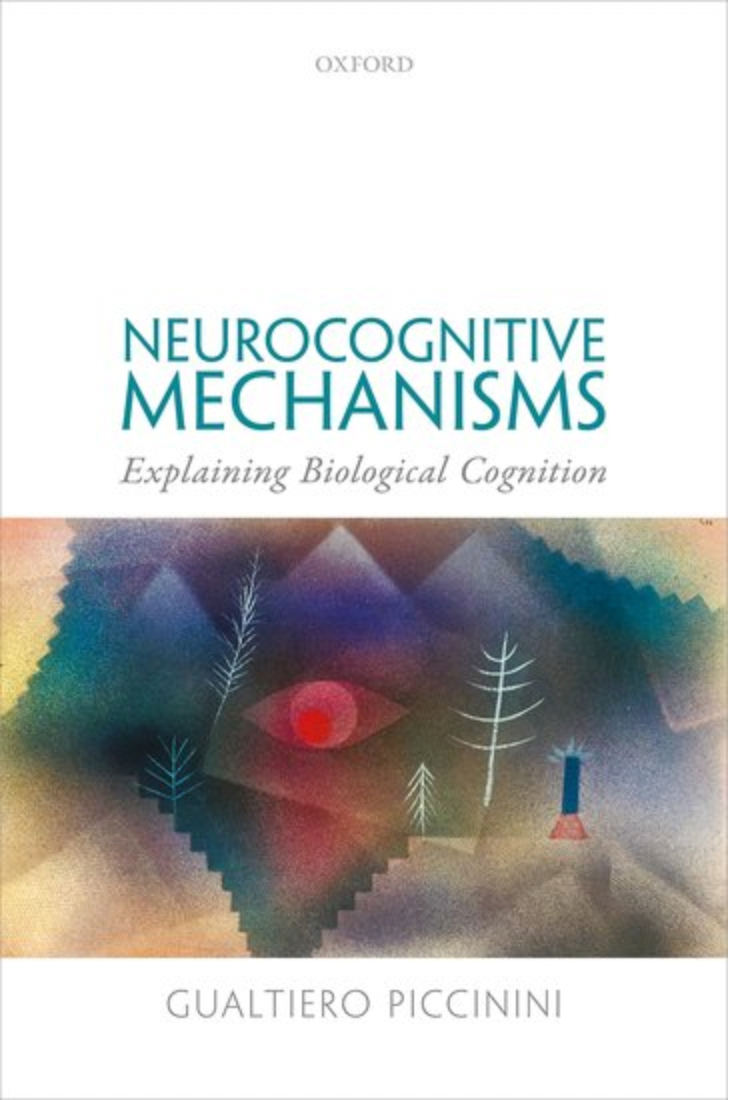
Gualtiero Piccini’s latest book, “Neurocognitive Mechanisms: Explaining Biological Cognition,” provides a comprehensive philosophical defense of the computational theory of cognition by arguing that cognition involves neural computation within multilevel neurocognitive mechanisms. (Photo by August Jennewein)
Gualtiero Piccinini has spent much of his nearly 20-year career contemplating the way the human mind works.
A Curators’ Distinguished Professor of Philosophy at the University of Missouri–St. Louis, Piccinini has had a particular interest in grappling with if cognition results from the brain engaging in a series of inner computations – with the neurons of the brain processing information – as supposed in the computational theory of cognition.
“Neurocognitive Mechanisms: Explaining Biological Cognition” was published in December by Oxford University Press.
His latest book, “Neurocognitive Mechanisms: Explaining Biological Cognition” presents a comprehensive philosophical defense of that theory by arguing that cognition involves neural computation within multilevel neurocognitive mechanisms. Published in December 2020 by Oxford University Press, the book also explains that while the brain engages in computation, the processes it uses are unique, not like the mechanisms used by digital or even analog computers.
“For me, this book is a big deal,” Piccinini said. “It’s the culmination of my career up to now, and it’s presenting everything in a systematic way. So I do hope people take it into account.”
Piccinini began writing “Neurocognitive Mechanisms” not long after Oxford University Press published his first book, “Physical Computation: A Mechanistic Account” in 2015. That book was meant to prepare the ground by explaining what it means for a physical system to perform computations or to be a computational system.
It also builds on many of his previous published articles, including a 2013 paper, written with UMSL Professor of Physics Sonya Bahar, in the journal Cognitive Science titled “Neural Computation and the Computational Theory of Cognition.”
“It’s a 20-year project, really,” Piccinini said. “There are ideas that go back to 20 years ago, but a lot of the work was done much more recently. I had published articles that looked at various pieces of the story for the second book, but when you put together articles written over a period of time, they’re not always fully consistent with each other. There are gaps, so you have to fill in and complete things, revise and harmonize. You have to reduce redundancies. It can be extra work, but a lot of the ideas have been vetted. They’ve been refined in the process of presenting them at conferences and trying to submit them as articles.”
Piccinini received a National Science Foundation Scholars Award, valued at $166,757, in 2017 that helped support his work on “Neurocognitive Mechanisms.” He completed his manuscript in 2019 and submitted it for review with Oxford agreeing to publish it.
In addition to diving into the debate about the computational theory of cognition, Piccinini brings forward some new ideas about the nature of levels, functions, neural representation, neural computation and consciousness.
“There’s lot of preparatory work that goes into laying the foundation for this whole idea,” Piccinini said. “A lot of that has value in its own right. It contributes to other debates about levels of reality, about functions, about consciousness. I think there are a lot of ideas in there.”
Piccinini traces his interest into thinking about how the mind works to an Introduction to Cognitive Psychology course he took as an undergraduate at the University of Turin in his native Italy. His professor assigned a collection of philosophical papers on the foundations of the discipline.
“I was fascinated because it’s philosophy, so there are arguments on both sides,” he said. “It’s not easy to decide who’s right. You can’t just do an experiment – not very easily, even though this is supposed to be scientifically informed. The scientists use this computational language and they frame things in terms of, ‘We’re explaining cognition computationally.’ But then other people say, ‘Well, that doesn’t work. It’s bogus. It’s a bankrupt idea.’ There are general objections for why it doesn’t work. It was fascinating. I think I was really interested in pursuing that topic and trying to sort that out.”
He’s continued to explore the topic ever since and been recognized for his work, including winning the Herbert A. Simon Award from the International Association for Computing and Philosophy in 2014 and the K. Jon Barwise Prize from The American Philosophical Association in 2018.
“Neurocognitive Mechanisms” might be his most significant accomplishment to date.
“I’d say it’s the most up-to-date, systematic treatment of this topic – the foundations of cognitive neuroscience and specifically the computational theory of cognition or neurocomputational theory of cognition,” Piccinini said. “I hope other people find it helpful.”















